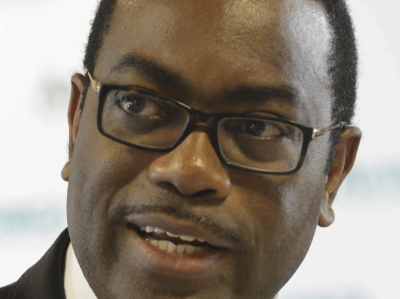With African investment in research and development (R&D) still well below the global average, African higher-education and research institutions rely on grants from outside the continent. This is not ideal, but it will be inevitable until African countries follow through on their promises to spend more on research.
Most research grants are merit-based — intended to support the best ideas with the greatest potential for success — but this risks funnelling most of the funds to a few researchers in rich countries and at institutions that have built prestige and reputations. Poorer countries and newly established institutions are struggling to compete. A more innovative and equitable funding system is needed to ensure that they don’t get left behind.
Grant makers — foundations, corporations and government agencies that fund research grants — are exploring new funding models to meet the needs of African researchers. A promising example is the hub-and-spoke model, which aims to distribute resources and knowledge in ways that balance merit with equity. The system features a centralized hub that receives funding and allocates it to each of its spokes, which are sprawled out around the wheel.

Africa’s future depends on government-funded R&D
In practice, the central hub is usually an African research centre or university that receives funding from grant makers and manages all of the procedures surrounding the award. Auxiliary institutions receive sub-grants from the hub to conduct defined research projects on behalf of the group. These spokes can be anywhere in the world, but the Developing Excellence in Leadership, Training, and Science in Africa (DELTAS Africa) initiative, which uses the hub-and-spoke model, has guidelines recommending that at least 60% of the spokes are African institutions.
Hubs will generally select spokes with which their ideas align, as well as those that have good potential to deliver quality research. Spokes are judged on aspects such as their methodologies, training programmes or facilities and track record of grant management.
Hubs are expected to assess the performance of their spokes, while maintaining communications and conflict-resolution protocols to ensure effective collaboration.
Achieving wider reach
Along with a focus on merit, diversity guidelines are integral to the successful running of a hub-and-spoke model. These guidelines aim to open up opportunities to more individuals and institutions than before, to ensure that there is a varied application pool to begin with.
As a result, the model also encourages the forging of mutually beneficial collaborations between rich countries in the global north and less well-off ones in the global south as well as south–south collaborations. The total budget that can be allocated to spokes in countries outside Africa is capped to ensure that African institutions receive the lion’s share of funding. This is to prioritize Africa’s research opportunities and priorities and ensure a balance of power between global-north and global-south participants.
DELTAS Africa’s hub-and-spoke model is being implemented by the Science for Africa Foundation, a non-profit organization based in Nairobi, with support from the London-based biomedical funder Wellcome and the UK Foreign, Commonwealth and Development Office. DELTAS Africa has established the model in all geographical regions of the African Union and has covered more areas of research than any other programme of its type. It has attained near 50:50 gender parity at all levels of the organization, including in directorship, authorship of publications, fellowships and research-management support. This improves on the rates across the African continent, where women form about 20–30% of the scientific workforce.
Susan Gichoga is a grants officer at the Science for Africa Foundation, based in Nairobi, Kenya.Credit: SFA Foundation
No funding model is without shortcomings or challenges. The scope and complexity of the various programmes, and the potential for cultural differences, for example, mean that set strategies are needed to ensure that groups are managed effectively.
Yet, the hub-and-spoke model offers distinct advantages for grant makers by increasing the quality of proposals during the application stage and ensuring richer intellectual capital during the implementation stage. Funders can be assured that their R&D resources are having a wide reach, and are furthering the equity, impact and research output of the programmes.
As outlined by the African Union’s Science Technology and Innovation Strategy for Africa — a framework established in 2015 to accelerate the transition to an innovation-led, knowledge-based economy — investing in R&D is crucial to address the continent’s unique public-health challenges and the looming effects of climate change. As funders accelerate R&D investments, they must ensure that diversity, equity and historical structural realities are factored into their grant-making approaches.
